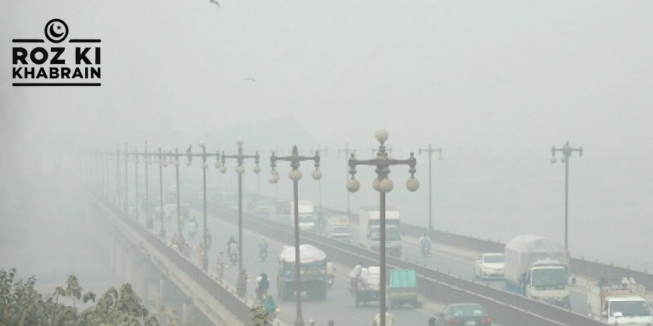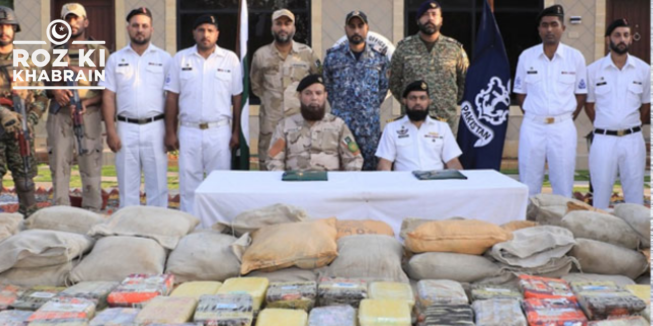Punjab Implements ‘Smart Lockdown’ as Multan’s AQI Surpasses 2,000
The air quality in Punjab continues to deteriorate, with Multan’s Air Quality Index (AQI) reaching a staggering 2,135 on Friday morning, intensifying the smog crisis across the region. In response to the worsening air pollution, the provincial government has imposed a ‘smart lockdown’, shutting down parks and museums until November 17.
The concentration of PM2.5 — fine particulate matter that poses severe health risks — was recorded at 947 micrograms per cubic meter, a level that is 189.4 times higher than the WHO’s safe limit of five micrograms per cubic meter. By 10 p.m., Multan’s AQI remained hazardous at 980, more than three times the 300 threshold considered dangerous.
The surrounding districts of Bahawalpur, Muzaffargarh, and Khanewal also experienced similar air quality issues, causing significant visibility problems on the roads. In response, Multan’s Nishtar Hospital has set up smog counters in the outpatient and emergency departments, though no patients had been reported at the time of this report.
To combat the worsening situation, Multan’s Deputy Commissioner, Waseem Hamid Sindhu, implemented a ‘smart lockdown’ with markets required to close by 8 p.m. Traffic police have been instructed to strictly enforce measures against vehicles emitting smoke, and there is an ongoing crackdown on stubble burning and brick kilns operating without proper technology.
In Lahore, the AQI also surpassed 1,000, making it the most polluted city globally, even surpassing Delhi. Authorities have closed parks, zoos, playgrounds, and other public spaces across multiple districts, including Lahore, Sheikhupura, Gujranwala, and Faisalabad, with violators facing legal action under the Pakistan Penal Code.
The Punjab Environment Protection and Climate Change Department (EPCCD) attributes the unprecedented smog this year to wind patterns from India, particularly from Bikaner and Jaipur in Rajasthan, which have exacerbated the pollution levels in South Punjab. While local emissions from industries, vehicles, and stubble burning contribute to the smog, the winds from India have worsened the situation.
In response to the smog, senior government officials, including Minister Marriyum Aurangzeb, have urged the public, particularly children, to stay indoors. Strict measures are being enforced against pollution sources, including the seizure of 47 vehicles and fines amounting to Rs 550,000. Several food stalls have also been closed for violating environmental regulations.
Visibility on key roads in central and southern Punjab has been severely impacted by the thick smog, leading to road closures, including sections of the Lahore-Abdul Hakeem M3 Motorway and the Faisalabad-Pindi Bhattian M4 Motorway.




